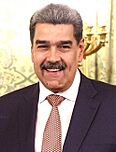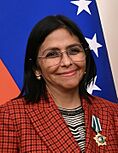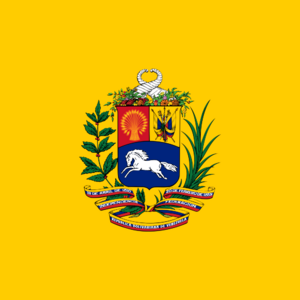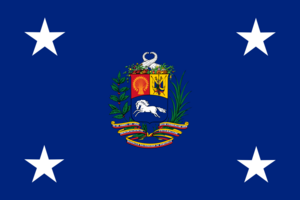President of Venezuela facts for kids
Quick facts for kids President of the Bolivarian Republic Venezuela |
|
|---|---|
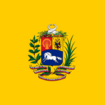
Presidential Standard
|
|
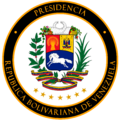
Presidential seal
|
|
|
|
|
| Style | Mr./Madam President (Señor/a Presidente/a) His/Her Excellency (Su Excelencia) |
| Member of | Cabinet |
| Residence | La Casona |
| Seat | Miraflores Palace, Caracas |
| Appointer | Popular vote election |
| Term length | 6 years,
no term limits
|
| Constituting instrument | Constitution of Venezuela (1999) |
| Inaugural holder | Cristóbal Mendoza (First Republic) José Antonio Páez (State of Venezuela) |
| Formation | January 13, 1830 |
| Deputy | Vice President |
| Salary | 4,068 USD monthly |
| Website | presidencia.gob.ve |
The President of Venezuela is the main leader of the country. This person is both the head of state and the head of government. They lead the Venezuelan government and are the commander-in-chief of the country's armed forces. A president serves for six years. Since 2009, there are no limits on how many times a president can be re-elected.
The role of president in Venezuela started in 1811. This was when Venezuela declared its independence from Spain. The first president was Cristóbal Mendoza. For a time, Venezuela was part of a larger country called Gran Colombia. After it became fully independent again in 1830, José Antonio Páez became president. Since then, every leader of Venezuela has been called president.
Venezuela faced many political challenges in the 1800s. It was often led by powerful military leaders. However, from 1958 until the 2010s, Venezuela had democratic governments. This was a time of economic growth for the country.
Recently, there were disagreements about who was the rightful president. In 2019, the National Assembly declared that Nicolás Maduro's 2018 re-election was not valid. They named Juan Guaidó as the acting president. However, Maduro continued to control the government's institutions. The interim government led by Guaidó was dissolved in December 2022. This happened as political parties looked for a new strategy.
In January 2026, the United States carried out airstrikes in Venezuela. This was part of an operation called Southern Spear. During these events, Nicolás Maduro was captured and taken out of the country. He stated that he was still the president.
What the President Does
The President of Venezuela has many important duties. They lead the country's executive branch. This means they manage the daily operations of the government. The president also represents Venezuela to other countries. They choose the cabinet members and, with approval, judges for the highest court. The president is also the top commander of the armed forces.
The Venezuelan Constitution outlines the president's main powers:
- To follow and enforce the country's laws.
- To guide the government's activities.
- To appoint and remove the Vice President and other ministers.
- To manage Venezuela's relationships with other nations. This includes signing international agreements.
- To lead the armed forces as their Commander-in-Chief.
- To declare special situations, like emergencies, when needed.
- To issue special orders that have the force of law.
- To call special meetings of the National Assembly.
- To manage the country's money and negotiate loans.
- To approve national contracts.
- To appoint important officials, like the Attorney-General.
- To present reports to the National Assembly.
- To create and oversee the country's development plans.
- To grant pardons to people.
- To decide how government ministries are organized.
- To call for public votes on important issues.
- To lead meetings of the National Defense Council.
- To carry out any other duties given by the Constitution.
Presidential Pay and Protection
The president receives a salary from the government. They cannot have other jobs with the state while in office. The president's salary cannot be more than twelve times the monthly minimum wage.
A special group called the Presidential Honor Guard Brigade protects the president. They also protect the president's family and other important political figures. This guard includes members from all branches of the armed forces. A high-ranking officer leads them.
The official office for the president is the Miraflores Palace in Caracas. This has been the workplace since 1900. The presidential home, called La Casona, has been used since 1964. However, some presidents have chosen not to live there.
History of the Presidency
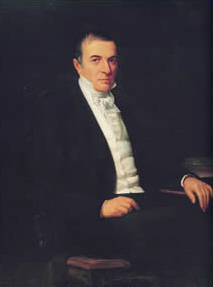
The title of President of Venezuela began after the country declared independence. This happened on July 5, 1811. The first president was Cristóbal Mendoza. He was part of a group of three leaders who took turns being president each week.
During the Venezuelan War of Independence, there was much confusion. Venezuela was also part of Gran Colombia for a time. Simón Bolívar was a key leader during these years. He was named "Supreme Commander of the Republic of Venezuela" from 1819 to 1830.
In 1830, José Antonio Páez declared Venezuela fully independent from Gran Colombia. He then became president on January 13, 1830. He was the first head of state for an independent Venezuela. Since then, the country has adopted several constitutions. Each one slightly changed the president's powers.
The 1800s were a time of political challenges. Venezuela was often led by powerful military leaders. But from 1958, the country had democratic governments. This was a period of economic growth.
Nicolás Maduro became interim president on March 5, 2013. This happened after the death of Hugo Chávez. Maduro was then elected president in 2013. He was re-elected in 2018. However, this election was disputed. Many opposition parties were not allowed to participate. There were also claims of voting problems.
On January 5, 2019, the National Assembly stated that Maduro's term had ended. They argued that his 2018 re-election was not valid. The Constitution says that if the presidency is empty, the head of the National Assembly takes charge. So, Juan Guaidó, the head of the Assembly, was declared acting president on January 16.
This led to a period of disagreement over who was the rightful president. Many countries supported Maduro, while others supported Guaidó. The United Nations continued to recognize Maduro as president. In December 2022, the interim government was dissolved. This was done to create a new strategy for future elections.
In January 2026, the United States launched airstrikes in Venezuela. This was part of Operation Southern Spear. During these events, Nicolás Maduro was captured and taken out of the country. He stated that he remained president.
Who Can Be President?
To become President of Venezuela, a person must meet certain requirements:
- Be a Venezuelan citizen from birth. They cannot have any other nationality.
- Be at least 30 years old when the election happens.
- Not have any final legal convictions.
- Not be a minister, governor, mayor, or vice president from the time they announce their candidacy until the election day.
How Long is a President's Term?
A president serves for six years. Citizens can call for a special vote, called a recall referendum, to remove a president from office. This can happen any time in the last three years of their term. In 2009, a public vote removed limits on how many terms a president could serve.
From 1958 to 1999, a president served for five years. They could not be re-elected right away. They also could not run again for 10 years after leaving office.
Recall Votes
A president can be removed from office through a recall vote.
- 2004 Venezuelan recall referendum
- 2016 Venezuelan recall referendum (this vote was not approved)
Past Presidents
Presidents who served under the 1864 constitution were called "President of the Union." This was different from the "President of the Republic" title used today. However, all heads of state since 1811 have held the title of "President of Venezuela." The official name of the country has changed a few times since 1830.
See also
- List of presidents of Venezuela
- List of vice presidents of Venezuela
- History of Venezuela
- Politics of Venezuela
Images for kids
See also
 In Spanish: Presidente de Venezuela para niños
In Spanish: Presidente de Venezuela para niños
- List of presidents of Venezuela
- List of vice presidents of Venezuela
- History of Venezuela
- Politics of Venezuela
 | John T. Biggers |
 | Thomas Blackshear |
 | Mark Bradford |
 | Beverly Buchanan |


